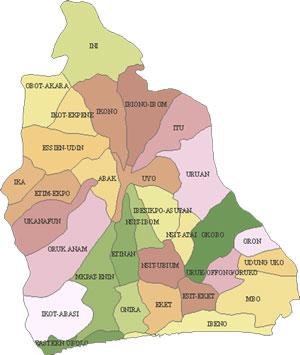A university don has identified economic, environmental and social factors hampering the overall development of Akwa Ibom State.
Speaking Thursday in Uyo, Professor Peter Esuh, Dean of Communication Arts Faculty, Uyo, mentioned economic issues to include Unemployment and Poverty, capital flight, decay of infrastructure, paucity of healthcare facilities in rural areas, and rural-urban migration.
Esuh delivered a lecture on Understanding key economic, social and environmental issues in Akwa Ibom during a two-day training workshop organised by United Nations Information Centre (UNIC), Lagos in collaboration with Sustainable Development Goals (SDGs) and Media Awareness & Information for All Network (MAIN) for journalists in Uyo, Akwa Ibom capital.
Read also: Ending poverty, hunger in 2030 by UN mirage- University Don argues
On environmental issues, he identified global warming, oil spill, total collapse of the sea bed and lack of embankment of the river fronts, complete neglect of the dredging of our water ways, landslides and ravines, and near absence of government pipe borne water.
Others are poor waste management, deforestation, outdoor air pollution, open defecation, inadequate power supply and noise pollution.
| On social issues, he listed them, to include human trafficking and gender-based violence, religious syncretism, superstition, proliferation of duplicitous “prayer houses,” cultism, inter-ethnic rivalries and accusations of socio-political marginalisation, widowhood practices and other forms of gender-based discrimination:
Others are functional illiteracy, semi-literacy and lack of relevant marketable skills, out of-school children and street hawking and street/roadside market and marketing. |
| He said ”Akwa Ibom State, like any other state in Nigeria, is not insulated from the social, economic, and environmental factors that influence Nigeria’s contemporary existence.
”If the state’s leadership and citizenry are to be able to grapple with these issues, they must be made aware and constantly reminded of them. That duty of public mindfulness falls squarely within the purview of the press. According to him, ”From a global perspective, these issues are well encapsulated in the Sustainable Development Goals, a collection of 17 interlinked global objectives designed in 2015 by the United Nations General Assembly as a blueprint for a better and more sustainable future for the world. All governments that seek an equitable future for their people must, as a duty, align their policies and programmes with these goals. Esuh noted that the best policies and plans can be scuttled by any number of factors, not least of which are corruption, invidious politicking, sectional interests, lack of political will, incompetence, or even plain ignorance. He enjoined journalists to contribute to the attainment of the goals of a sustainable future and a better polity through their surveillance and advocacy, noting ”Part of that journalistic duty involves highlighting the challenges facing society, rather than merely sweeping problems under the carpet as some of the Soviet press in the Cold War era were inclined to do.” Also speaking, Professor Lai Oso, Dean of Mass Communication faculty, Lagos State University who handled Introducing Sustainability Journalism highlighted surveillance of the environment, correlation parts of the society, transmission of cultural heritage and entertainment as fuctions of the media. Oso advocated Sustainability Journalism as a panacea to economic, environmental and social issues affecting the society. Dr. Jide Jimoh, Associate Professor, School of Mass Communication, Lagos State University, handled Dissecting the centrality of sustainability in development issues and reporting advised journalists to focus on issues rather than sentiments to bring succour to the affected. In her presentation, Dr. Ekaete Akpabio of the University of Uyo, who spoke on Gender equality and Sustainable Development Goals, canvassed for gender equality and feminist action. Earlier, Dr. Oluseyi Soremekun of UNIC, had presented case studies of news stories from some national dailies and how journalists could raise probing questions after publishing the first news story to bring about solutions to lasting development at the grassroot.
|

